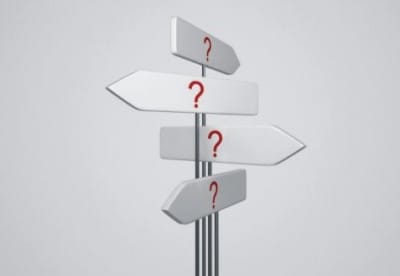From signboards to signposts

Is this the direction we are headed? Riko Pictures/ Getty Images
WHAT'S in a name?" Juliet asks in Shakespeare's drama. If she were to ask that question to our politicians, their reply would be strikingly opposite of what she tells her lover. A rose doesn't smell as sweet to them when it's called by an opponent's name. As a matter of fact, it stinks when anything is named after him at all. Name is logo to the political brand. In this country, the change of name is the name of change.
The prime minister stated that fact last Friday while she was addressing a party meeting. The BNP regime had changed the names of nearly 250 projects either constructed or initiated during her previous term. She is convinced that a fresh round of renaming should set the record straight. It should teach a lesson so that rival politicians don't make the same mistakes again.
Will that happen? In thirty-nine years, we have seen too many lessons and not enough learning. Names have been renamed before, which is why they are being renamed now. If BNP comes to power, bet your money, the whole funny exercise is going to be repeatedly repeated.
It's strange that in our excitement, we teach others but learn nothing. France's reactionary Bourbon dynasty suffered from the same contradiction. They neither learned nor forgot anything. It goes for our politics with an interesting twist. The opponents should learn everything. We should forget nothing.
This is where lies the secret of our national deadlock. And, I have to tell about a character from Jorge Luis Borges' short story Funes the Memorious. A horse riding accident cripples Funes, and suddenly everything he hears or reads remains etched in his memory. Unable to forget, he eventually succumbs to the burden of remembering.
In our case, that burden is bifurcated. We remember everything the opponents do to us, but forget everything we do to them. And, we do both with equal intensity. Perhaps as a nation we are unable to unwind. We remember to seek revenge, and forget to forgive. An eye for an eye makes the whole world blind. Revenge for revenge is making us unkind.
At this stage we have no consideration for the country. Modern Greece is an example of how that lack of consideration eventually transmogrifies into politics. The country is deeply paralysed by partisan rivalry. The political class is aware of the country's problems but it does nothing.
So, any reform measure in Greece sparks mass rioting. The land registry system can't be modernised because illegal landowners fight back. The country draws no foreign investment due to high barriers to investment. But these barriers can't be lowered because business is more powerful than politics. Greece today has become a mosh pit of self-interests, its economy squandered.
That is the outcome of divisive politics. In fact, when the old signboard comes down and the new one goes up, it further divides the division. In that fluctuation of change, the country goes out of hand.
Silly, we talk about lessons when there is no learning. Perhaps we are the only nation on earth where politicians are hung up on changing signs. And, the cost of that flip-flop is nobody's worry. One newspaper reports that renaming of Zia International Airport alone is going to cost Taka 1,400 crore. Name changing can be an expensive business.
But why does this country incur that cost? Who pays for it? Of course, the cost is borne by the taxpayer. In case we don't know who he is, he's one of us, you and me. Sarojini Naidu once quipped about Gandhi: "Bapu, it costs us a fortune to keep you poor." Likewise, it costs us to keep the leaders in our hearts. But it costs us a lot more to keep them in marquees.
Our politics revolves around that anomaly, renaming the names and naming the renames keeping us busy. In the name of change, the change of names is dividing this country. It's holding us back, because we are conflicted over conflicts.
We don't know what the renaming of the airport is going to achieve. But it was followed by the prime minister's remark, which casts a long shadow of doubt. A political reconciliation is evermore receding. It looks evermore remote.
Brad Paisley is a white man's singer and many of his fans hadn't voted for Barack Obama. Yet Obama hosted him at the White House in November. Nelson Mandela embraced the sport of rugby to win over the white South Africans. Both presidents reached out to unite their respective people.
They teach us that lessons are best learned when they aren't taught at all. Name change doesn't work, because it mutually intimidates. This country urgently needs direction to get out of this mess. About time we switched from signboard to signpost.

 For all latest news, follow The Daily Star's Google News channel.
For all latest news, follow The Daily Star's Google News channel. 



Comments